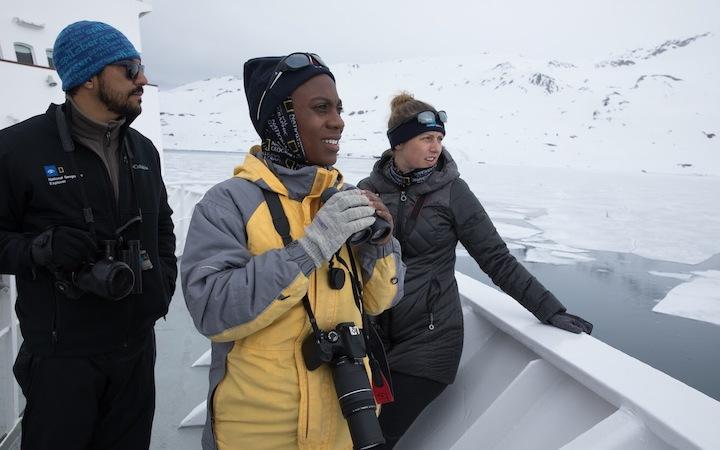The past year has left many feeling drained, but teachers like Brynn Johnson, a fifth- and sixth-grade science teacher at the Academy of the Sacred Heart in New Orleans, persist in teaching with passion and a readiness to problem-solve.
“I applaud all teachers everywhere because there was this huge moment where all teachers had to come together and collectively figure out what we do now,” says Brynn, who taught in Birmingham as part of ACE 14. “It’s real-life problem-solving, and it’s happening on a day-to-day basis.”
Brynn has devoted a significant amount of time over the past year to problem-solving. In January 2020, with the support of school administrators, she took a leave of absence to travel to New Zealand as a Fulbright U.S. Distinguished Teacher. She was teaching math and deeply interested in learning more about problem-solving. Because the Academy of the Sacred Heart is an all-girls school, she was also interested in learning how to increase their engagement in STEM fields. Then as the world began to experience the impact of COVID-19, Brynn’s trip took on a new meaning.
“I got to see the response that New Zealand and some of the surrounding countries took to COVID-19,” Brynn recalls. “The importance of communication was heightened, and I saw that it was very important to share ideas and not be offended or upset if one’s idea didn’t work or wasn’t chosen.”

Brynn sees a clear connection between countries’ responses to COVID-19 and problem-solving in a classroom setting. “In the classroom environment, if your idea doesn’t end up being the one that is going to work best, it’s important to see yourself as part of a team or community,” Brynn says. “It’s important to ask, ‘What’s the best solution here? What do we need to do to get this project done?’”
Although the pandemic cut Brynn’s New Zealand experience short, her time in New Zealand was meaningful. Brynn has used her travels to share with her students how the problem-solving skills they practice in the classroom can apply to real-world contexts.
 Her passion and excitement rubbed off on her students, too. “When I shared my experience with the girls, it got them excited to see that not all math is doing ‘boring’ computations,” Brynn says. “They saw that these computational things are what help us to see trends over time and then we can work together to come up with solutions for how to address them.”
Her passion and excitement rubbed off on her students, too. “When I shared my experience with the girls, it got them excited to see that not all math is doing ‘boring’ computations,” Brynn says. “They saw that these computational things are what help us to see trends over time and then we can work together to come up with solutions for how to address them.”
In addition to her Fulbright experience, in 2017 Brynn was chosen to participate in the Grosvenor Teacher Fellowship through National Geographic. She and the other fellows had the chance to travel on a Lindblad Expedition ship to the Arctic and stay with the crew. While travel is a personal passion, Brynn also sees it as part of her growth and development as an educator.
“We live in a global society and so do our students,” Brynn says. “They need to be able to communicate with others, to accept the perspectives of other people, and to look at what’s going on in their own communities. I want them to ask themselves, ‘How can I improve and how can I be a change-maker in my community?’’
 Alliance for Catholic Education
Alliance for Catholic Education
